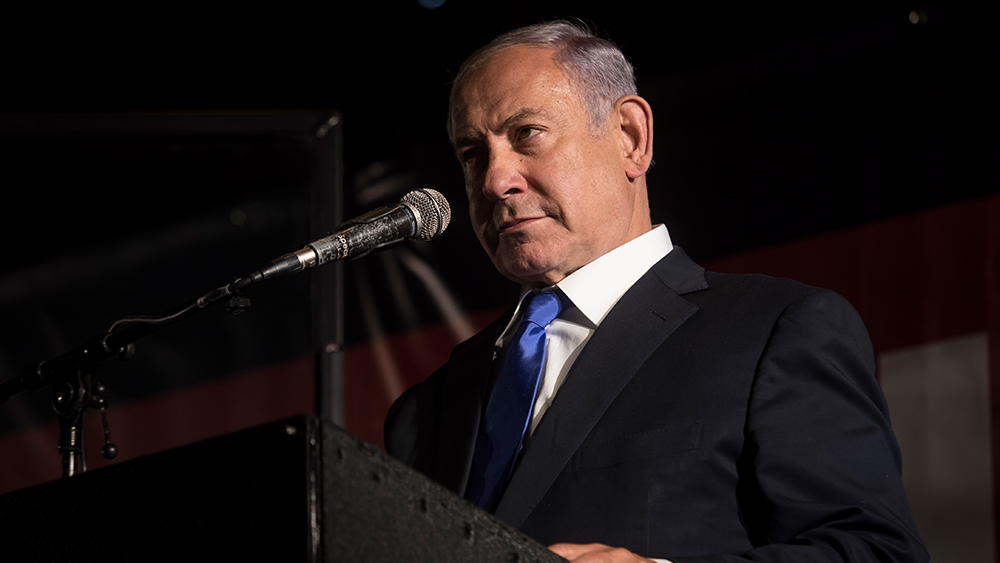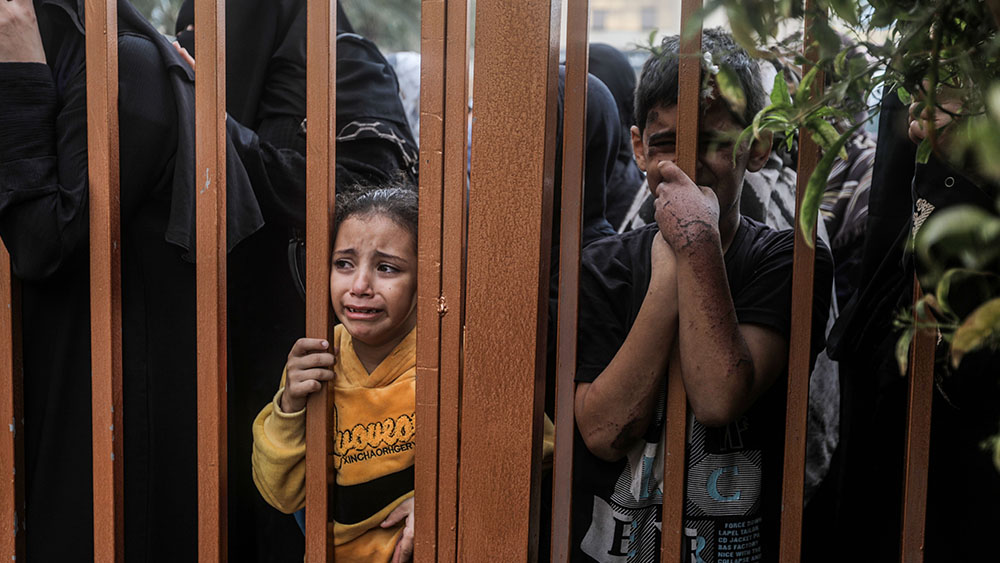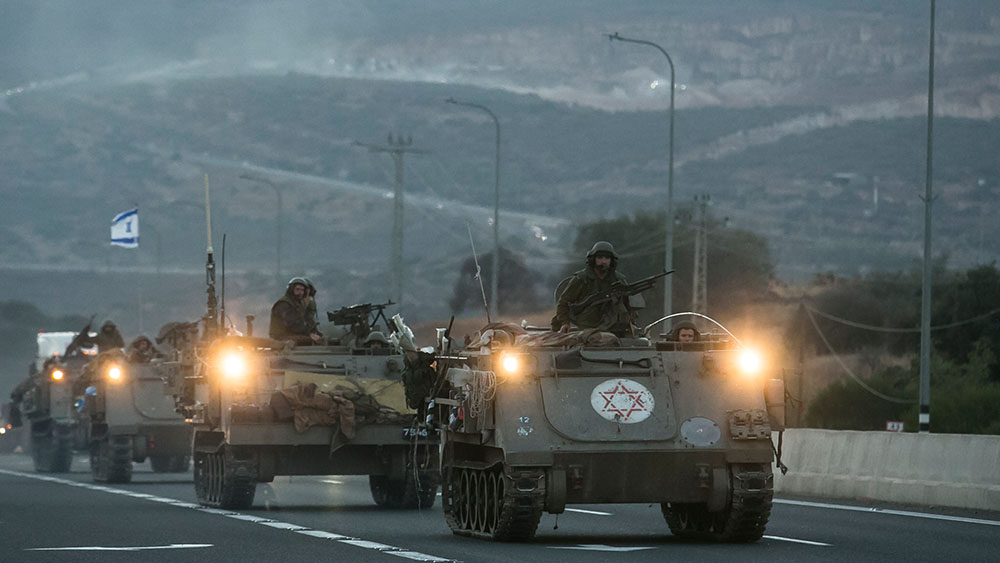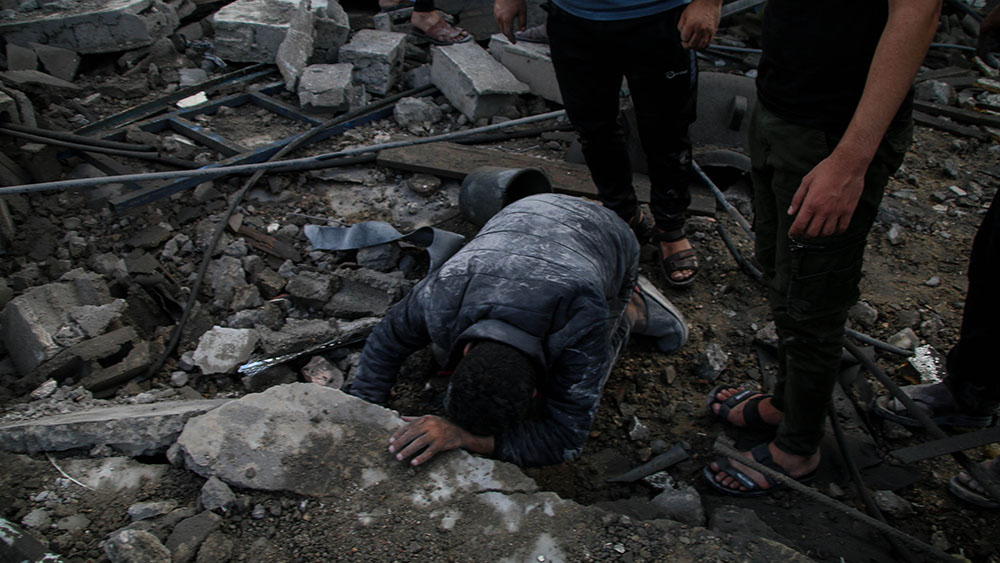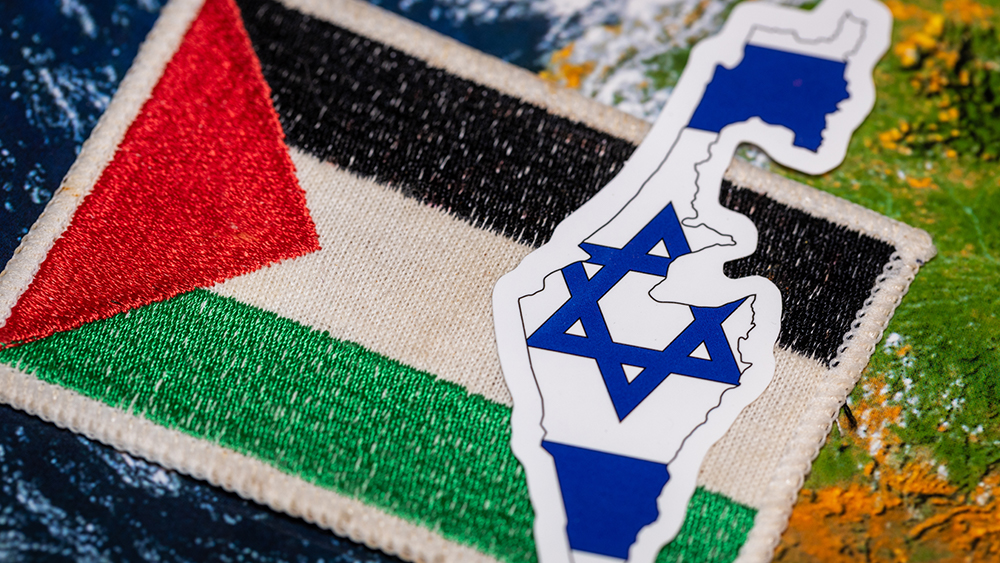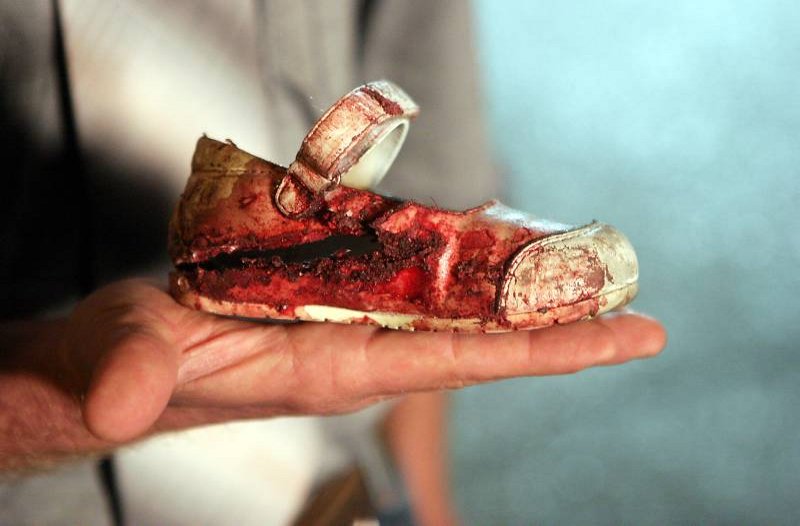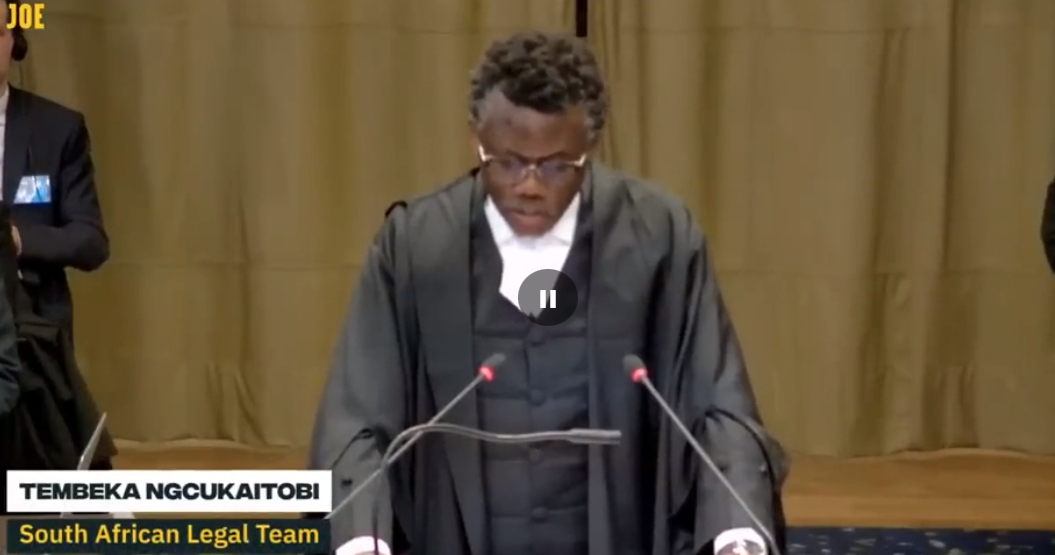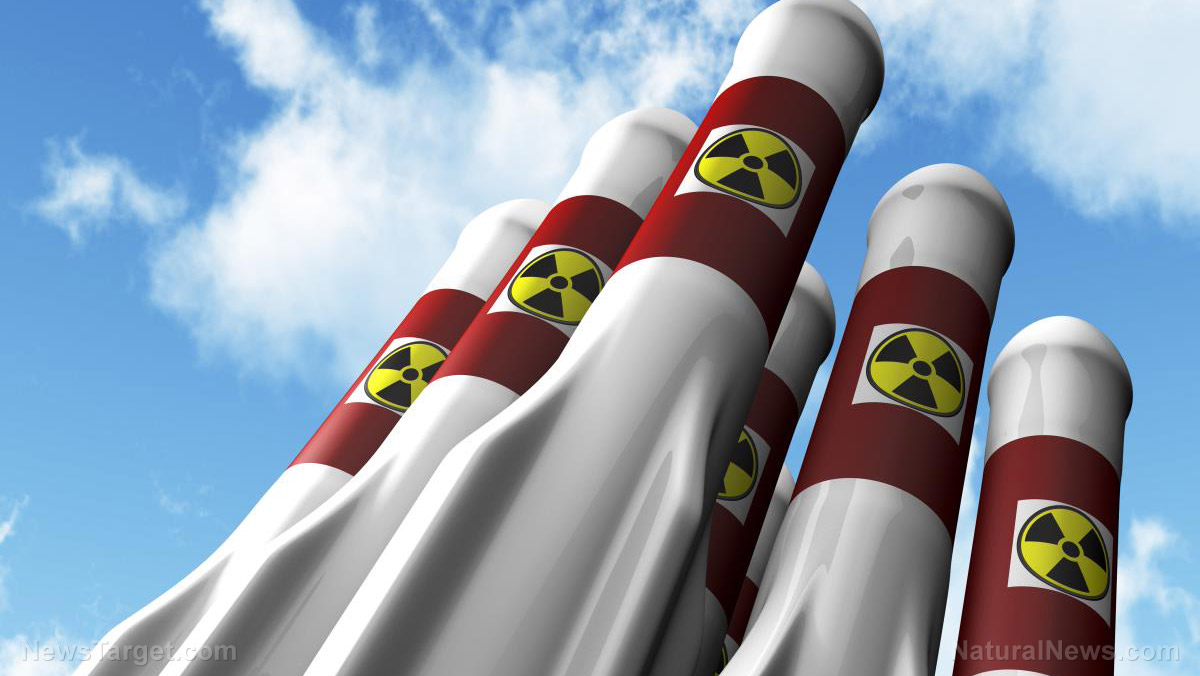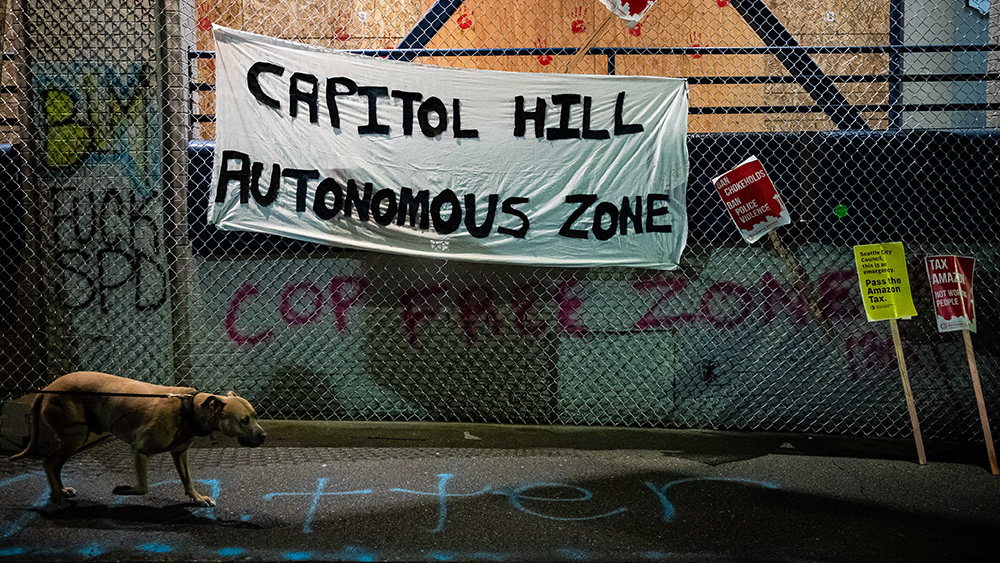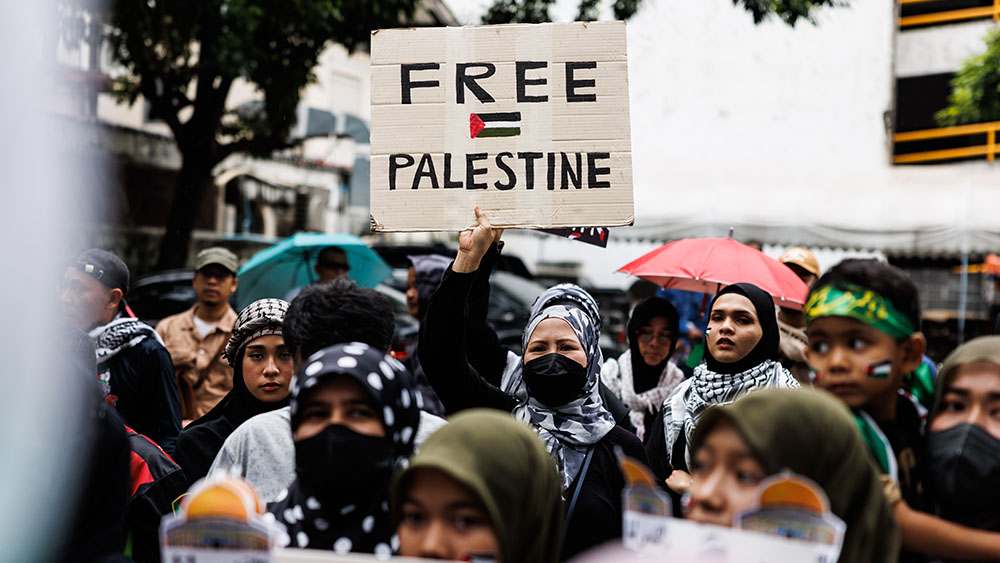Colombia breaks diplomatic ties with Israel over GENOCIDE in Gaza
05/06/2024 / By Richard Brown
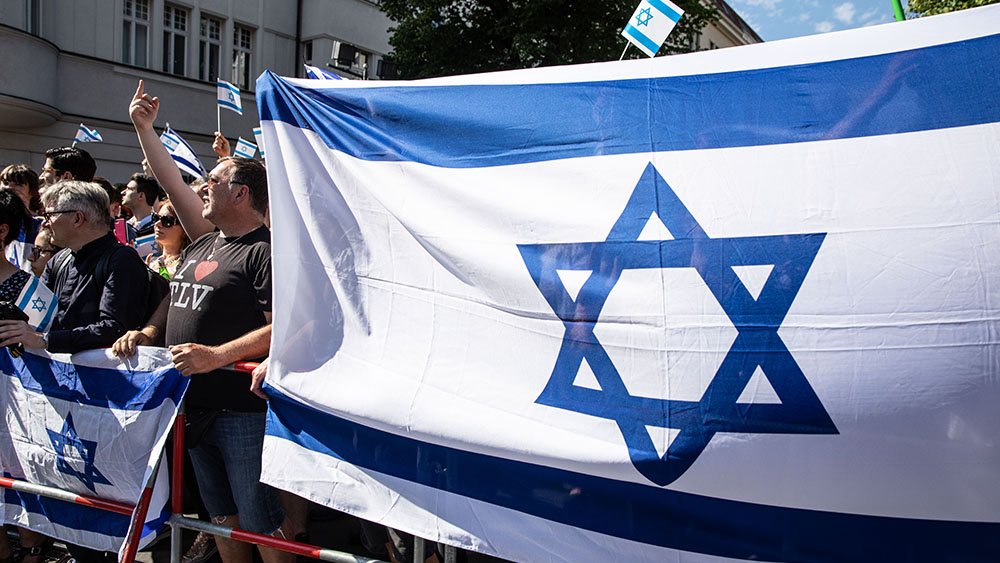
During the annual Labor Day celebrations in the capital of Bogota, Colombian President Gustavo Petro declared that the government would sever diplomatic ties with Israel over concerns regarding the genocide in Gaza and the “extermination” of the Palestinian people in the occupied territories.
In his address, Petro emphasized that the re-establishment of policies associated with genocide cannot be tolerated. The decision entails the expulsion of Israel’s ambassador to Colombia, Gali Dagan, and his diplomatic staff, who have been given 72 hours to leave the country upon receiving formal notification from the Colombian Ministry of Foreign Affairs.
“All of humanity in the streets agrees with us: The era of genocide, of the extermination of an entire people before our eyes, before our humanity, cannot return. If Palestine dies, humanity dies,” said Petro. (Related: Colombia threatening to cut diplomatic ties with Israel over “neo-Nazi” GENOCIDE in Gaza.)
As of now, there has been no immediate response from the Israeli ambassador regarding the president’s announcement.
Petro has consistently condemned Israel’s military actions in Gaza, accusing the country and its military of perpetrating genocide in the region, a claim he has reiterated multiple times since the onset of Israel’s offensive, which has resulted in the deaths of over 34,000 Palestinians, including around 14,000 children.
Furthermore, Colombia had previously recalled its ambassador to Tel Aviv and suspended arms purchases in response to the ongoing conflict.
Colombia’s military heavily reliant on Israeli arms purchases
Colombia has joined the ranks of a handful of other nations who have severed diplomatic ties with Israel or lodged other kinds of diplomatic protests due to its military campaign in Gaza, but the ramifications for Colombia may be more complex than for others, given longstanding bilateral agreements, especially in security matters.
The implications for Colombia’s military, which relies heavily on Israeli-built weaponry to combat drug cartels and rebel factions, remain unclear.
The country also maintains a free trade agreement with Israel, effective since 2020, adding another layer of complexity to the situation.
Military ties between Colombia and Israel run deep, with numerous agreements spanning education, trade, and defense since they established diplomatic relations in 1957.
Israeli-built fighter jets, including the aging Kfir fleet, have played a crucial role in Colombia’s fight against guerrilla groups. However, the maintenance of these aircraft necessitates collaboration with Israeli firms, presenting a challenge to Colombia’s defense strategy amid diplomatic tensions.
Additionally, Colombia utilizes Israeli-designed Galil rifles, with plans for diversification of suppliers currently under consideration.
Defense Minister Ivan Velasquez indicated that existing contracts with Israel will be honored, but no new agreements will be pursued. This transition could have significant implications for Colombia’s military capabilities, as well as its defense industry.
Security cooperation between the two nations has been strained, with Israel halting security exports to Colombia after Petro refused to condemn Hamas’ actions and subsequent comparisons of Israel’s actions to those of Nazi Germany. The suspension of arms purchases from Israel further underscores the diplomatic friction.
In terms of trade, Colombia’s exports to Israel totaled $499 million last year, predominantly comprising coal, coffee and flowers. However, this represents a significant drop from previous years, possibly influenced by political tensions. The fate of the trade agreement between the two nations remains uncertain, pending further diplomatic developments.
Watch this episode of the “Health Ranger Report” as Mike Adams, the Health Ranger, expresses his dismay over the Republican Party’s abandonment of the principles of free speech to defend Israel’s genocide.
This video is from the Health Ranger Report channel on Brighteon.com.
More related stories:
U.S.-based rights group calls on ICC to investigate Israeli commanders’ WAR CRIMES
World reacts to Israeli attack on Jabalia refugee camp, many calling it “inhumane” or “war crimes.”
Sources include:
Submit a correction >>
Tagged Under:
big government, Colombia, diplomacy, foreign relations, Gaza, genocide, Gustavo Petro, Israel, Israel-Palestine war, military, national security, Palestine, politics
This article may contain statements that reflect the opinion of the author
RECENT NEWS & ARTICLES
COPYRIGHT © 2017 VIOLENCE NEWS

